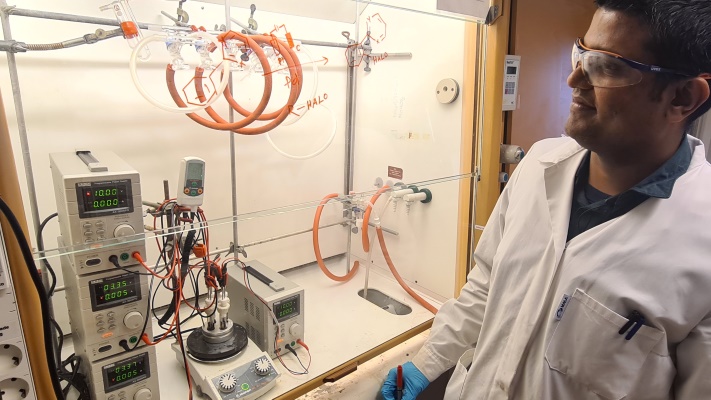Development of efficient synthetic methods

In order to enable access to new chemical structures that can constitute tomorrow's drugs, we conduct extensive research into the development of new synthesis methodology. This research involves, among many things, the combination of transition metal catalysis and electrochemistry, as well as new synthesis methods to make unnatural peptide derivatives.
Description
We develop new synthetic methods for modified peptides and peptidomimetics. Such compound classes offer the chance to mimic bioactive natural peptides, whilst improving potency and favourable drug-like properties. We have developed a range of synthetic strategies for incorporating various functional groups and structural motifs into peptides both in solution- and solid-phase, and applied these tools towards the development of inhibitors against viral and bacterial enzymes.
We are also focused on harnessing the power of electrochemistry to advance C-H functionalization chemistry, paving the way for greener and more efficient synthetic protocols. By leveraging state-of-the-art electrochemical techniques, we seek to develop new synthetic methodologies that allow for the direct transformation of carbon-hydrogen bonds into new carbon-carbon or carbon-heteroatom bonds, as a means of enabling expedited access to diverse molecular architectures with enhanced precision and efficiency. This research is primarily directed towards the synthesis of bioactive compounds, pharmaceutical intermediates, and various other valuable chemical products of relevance for drug design and development.
